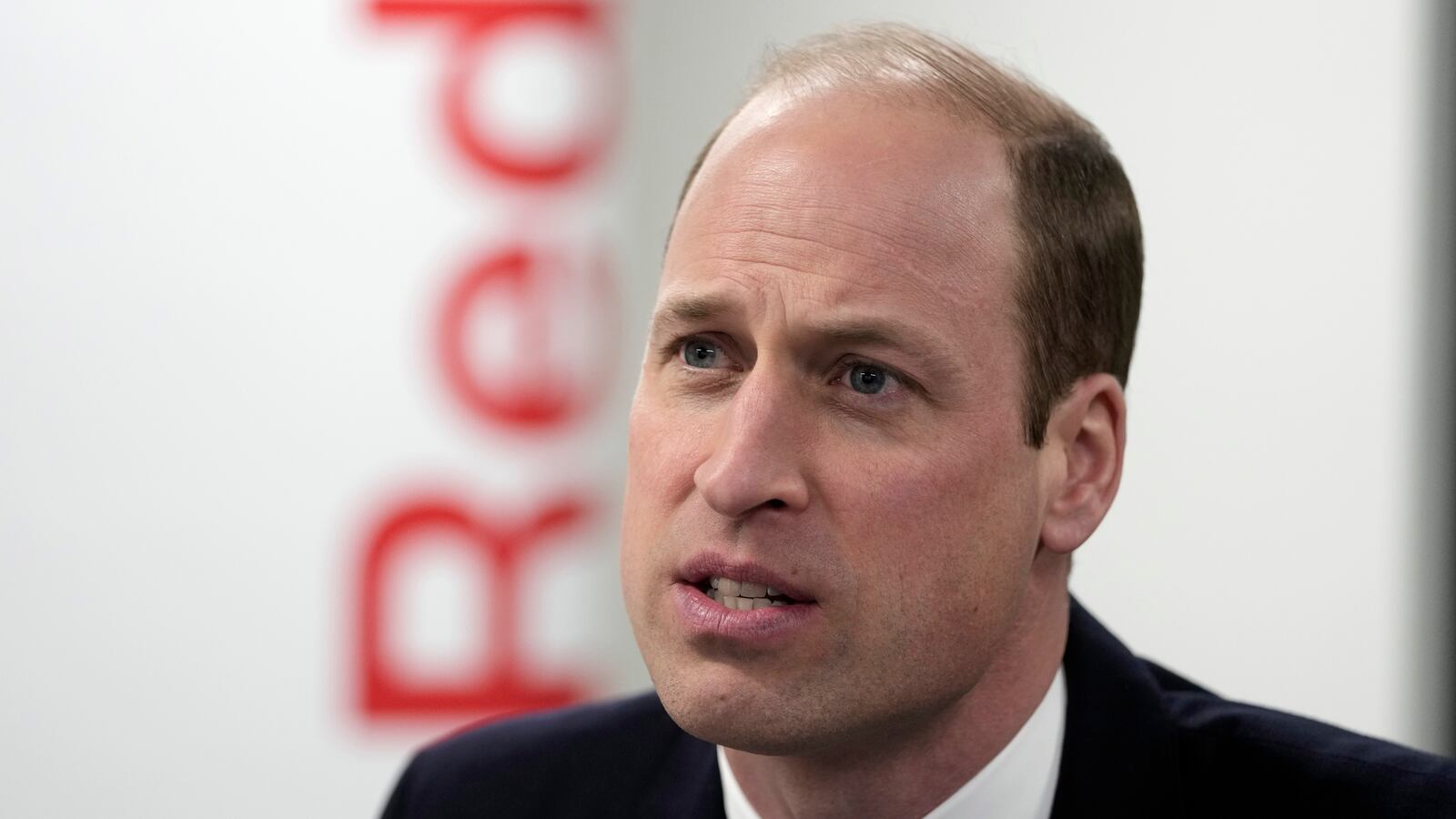Prince William’s dramatic statement calling for an end to the war in Gaza on Tuesday “dismayed” Israeli officials who considered it to be “naïve,” it was reported Wednesday.
However, the officials were restrained in their criticism of William, as they did not want to “enter into a row with the future king,” a report in the Telegraph said, without citing sources.
Meanwhile, some political commentators suggested that William may have made the comments at the urging of the foreign secretary, David Cameron.
Ed Balls, a former senior political strategist for the Labor Party, speculated on ITV’s Good Morning Britain: “I wonder whether the foreign secretary, Lord Cameron, isn’t saying to the palace, ‘If you’re thinking of an intervention, this is the week to do it. Help us to ratchet the pressure up on Israel, now’s the time.’”
William’s office has said that his remarks were approved by the Foreign Office, but clearly suggested that they were made on William’s initiative, with aides telling reporters that William decided to speak out after being affected by the “extent of human suffering that is on display.”
The Telegraph said Israeli officials were caught “off guard” by the prince’s “naïve” statement, which went against decades of precedent established by Queen Elizabeth II, in which the British monarch has stayed away from contentious issues.
William said: “I remain deeply concerned about the terrible human cost of the conflict in the Middle East since the Hamas terrorist attack on 7 October. Too many have been killed. I, like so many others, want to see an end to the fighting as soon as possible. There is a desperate need for increased humanitarian support to Gaza. It’s critical that aid gets in and the hostages are released.
“Sometimes it is only when faced with the sheer scale of human suffering that the importance of permanent peace is brought home. Even in the darkest hour, we must not succumb to the counsel of despair. I continue to cling to the hope that a brighter future can be found and I refuse to give up on that.”
Israel decided on a measured response to avoid risking a diplomatic rift with the future king, according to the Telegraph.
The Israeli response ran as follows: “Israelis of course want to see an end to the fighting as soon as possible, and that will be possible once the 134 hostages are released, and once the Hamas terror army threatening to repeat the Oct. 7 atrocities is dismantled. We appreciate the Prince of Wales’ call for Hamas to free the hostages. We also recall with gratitude his statement from Oct. 11 condemning Hamas’ terror attacks and reaffirming Israel’s right of self-defense against them.”
The well-connected royal writer Richard Kay said in the Daily Mail that William “wants to move away from the mere platitudes that are the typical stuff of royal statements,” but cautioned this could lead the royals into “dangerous uncharted waters,” adding, “With the king incapacitated, what William does and says are necessarily subject to additional scrutiny.”
The Daily Beast has been told that William will continue to speak out on controversial matters when he “feels the need” to do so.
Britain’s Chief Rabbi notably welcomed William’s statement, writing on X, that William to date had “shown a deep concern for the well being of all those affected by the conflict in the Middle East and his words of compassion today, which I welcome, are yet further evidence of this. His plan to visit a synagogue to learn more about the troubling global increase in antisemitism will send a powerful message that there must be no place for anti Jewish hatred in our society.”







